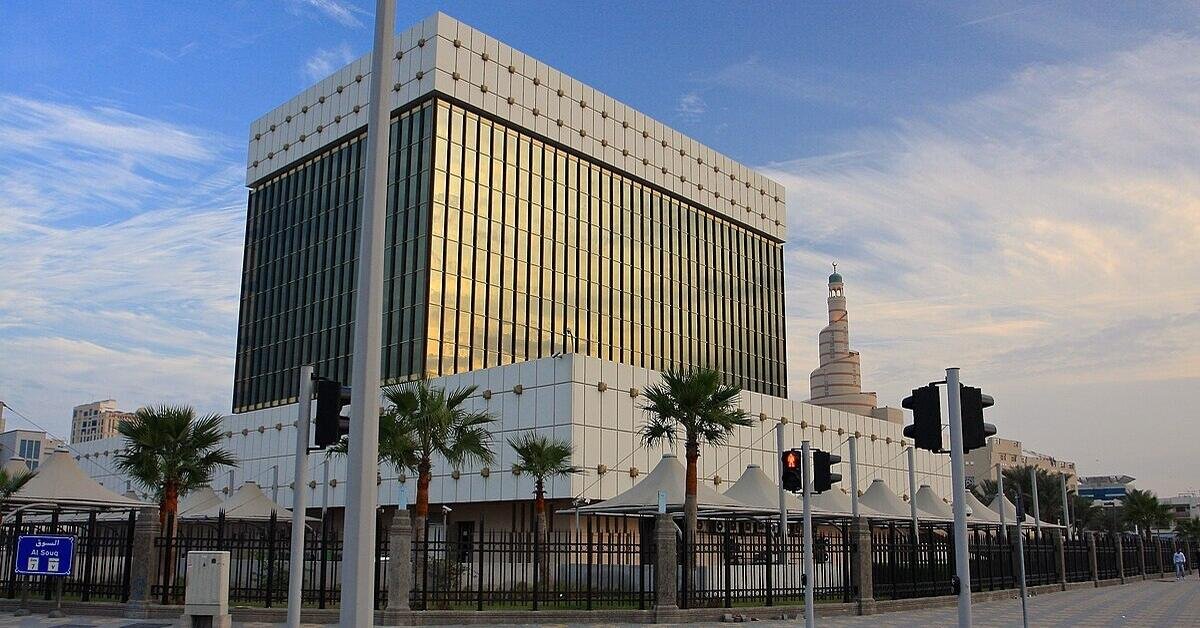If you’re working in Qatar and are planning to leave your job, whether you’re switching employers or moving back to your home country, it’s essential to understand the End of Service Gratuity (EOSG). This financial benefit is granted to employees at the end of their employment as per Qatar’s labor laws. Here’s everything you need to know about calculating End of Service Gratuity in Qatar under the updated 2024 Labor Law.
What is End of Service Gratuity?
End of Service Gratuity (EOSG) is a severance payment that workers in Qatar are entitled to upon the termination of their employment contract. The amount is based on the number of years you’ve worked for your employer and is usually calculated based on your last basic salary.
This payment is meant to ensure that workers are financially supported when they leave their jobs, whether they resign, their contract ends, or they are terminated under specific conditions.
Who is Eligible for End of Service Gratuity in Qatar?
According to Qatar’s labor law, all employees are eligible for End of Service Gratuity if they meet the following criteria:
- Completion of at least one year of continuous service with the employer.
- The employment contract is terminated legally (i.e., not due to serious violations such as misconduct as listed in Article 61 of the Qatar Labor Law).
- The employee is covered under the Qatar Labor Law (Law No. 14 of 2004) or Domestic Workers Law (Law No. 15 of 2017).
Workers who have worked for less than one year are not entitled to EOSG.
How is End of Service Gratuity Calculated in Qatar?
The calculation of your End of Service Gratuity is based on your last basic salary and the total length of your service. According to the law:
- For every year worked, the employee is entitled to three weeks (21 days) of salary as gratuity.
- If your employment was for less than a year, no gratuity is provided.
- The gratuity for partial years is calculated proportionally.
Here’s a breakdown of how it works:
| Total Service Duration | End of Service Gratuity |
|---|---|
| Less than 1 year | No gratuity |
| 1 year and above | 3 weeks (21 days) of basic salary per year of service |
Example Calculation:
Let’s say your basic salary is QAR 5,000 per month, and you have worked for 3 years in Qatar. Here’s how you would calculate your End of Service Gratuity:
- Basic Salary: QAR 5,000
- Length of Service: 3 years
- EOSG per Year: 21 days of salary per year
To calculate the End of Service Gratuity, follow these steps:

How to Use the End of Service Gratuity Calculator Online?
To easily calculate your End of Service Gratuity in Qatar, you can use the official Qatar Ministry of Labor’s online tool. This convenient calculator allows you to determine your gratuity based on key details, such as the start and end dates of your employment, along with your basic salary and the number of gratuity days per year (currently 21 days as per the latest labor law).
Follow these steps to calculate your gratuity:
Step 1: Visit the Qatar Ministry of Labor Gratuity Calculator:
Access the official calculator via the Ministry of Labor’s website. The tool is available in both Arabic and English.

Step 2: Enter the Date of Joining:
Input your employment start date to determine the length of your service.
Step 3: Enter the Date of Termination:
Insert your last working day or the end date of your employment contract.
Step 4: Input Your Basic Salary:
Enter your basic salary, as only this amount is considered for gratuity calculations.
Step 5: Enter the Gratuity Days:
As per the current labor law, the standard gratuity is calculated based on 21 days of salary for each year of service.
Step 6: Click on “Calculate”:
Once you’ve entered all the required information, click the “Calculate” button to determine your gratuity amount.
By following these simple steps, the tool will calculate your gratuity based on your years of service and salary. This provides a quick and accurate way to understand your entitlement when ending your employment in Qatar.
End of Service Gratuity According to Qatar Labor Law
Under Qatar Labor Law (Article 54 of Law No. 14 of 2004), employees who have completed at least one year of continuous service with an employer are entitled to receive End of Service Gratuity upon separation. This gratuity is in addition to any other payments the employee may be owed at the time of leaving.
The amount of End of Service Gratuity is determined based on an agreement between the employer and employee, but it cannot be less than the equivalent of three weeks of salary for each year of service. If the worker has worked for a fraction of a year, the gratuity will be calculated in proportion to the duration of service.
The worker’s service is considered continuous, as long as it is not terminated for the reasons outlined in Article 61 of the Labor Law, and the worker is reinstated within two months of separation.
The gratuity is based on the employee’s last basic salary, as stated in the employment contract. Additionally, the employer has the right to deduct any amounts the worker owes from the gratuity payment.
End of Service Gratuity According to the Domestic Workers Law
Under Qatar’s Domestic Workers Law (Law No. 15 of 2017), domestic workers who have worked for one full year or more are also entitled to receive End of Service Gratuity upon the end of their employment.
The gratuity is calculated similarly to that of other workers, with a minimum of three weeks of salary for each year of service. The amount is agreed upon by both the employer and the worker, but it should not be less than this legal minimum. If the worker has worked for a part of the year, the gratuity is calculated proportionally to the time worked.
Employers are entitled to deduct from the gratuity any outstanding amounts the worker owes them, similar to the provisions in the general Labor Law.
Can an Employer Terminate an Employee Without Notice and Without Paying End of Service Gratuity?
Under Article 61 of Qatar’s Labor Law, there are specific circumstances under which an employer can dismiss an employee without prior notice and without paying the End of Service Gratuity (EOSG). These exceptions are typically associated with serious misconduct or breaches of contractual obligations. The following are the situations where an employer is legally permitted to take such action:
- False Identity or Documents: If the worker assumes a false identity, claims a nationality other than their own, or presents false certificates or documents.
- Gross Financial Loss: If the worker’s actions cause significant financial loss to the employer, provided the employer reports the incident to the relevant authorities within 24 hours of becoming aware of it.
- Repeated Safety Violations: If the worker repeatedly disregards written safety instructions, despite being warned in writing. These safety instructions must be posted in a visible location within the workplace.
- Failure to Perform Duties: If the worker fails to carry out essential duties outlined in the employment contract or under the law, even after being formally warned in writing.
- Disclosure of Confidential Information: If the worker discloses confidential information or trade secrets of the employer.
- Intoxication at Work: If the worker is found to be drunk or under the influence of drugs during working hours.
- Assault on Employer or Supervisors: If the worker physically assaults the employer, manager, or any supervisor during working hours or due to work-related reasons.
- Repeated Assault on Colleagues: If the worker repeatedly assaults colleagues, despite receiving written warnings.
- Unauthorized Absences: If the worker is absent from work without a legitimate reason for more than seven consecutive days or fifteen non-consecutive days within one year.
- Criminal Conviction: If the worker is convicted of a final judgment in a crime involving dishonesty or moral turpitude.
Can Employers of Domestic Workers Terminate the Employment Contract Without Notice and Without Paying End of Service Gratuity?
Yes, employers of domestic workers are also allowed to terminate the employment contract without notice and without paying the End of Service Gratuity if the worker fails to meet certain conditions. Under Articles 16 and 11 of the Domestic Workers Law No. 15 of 2017, employers can dismiss a domestic worker without gratuity if they fail to comply with the terms and obligations of the employment contract. Such breaches may include:
- Repeated non-compliance with the responsibilities and tasks as agreed in the contract.
- Gross misconduct or serious violations of the employer’s instructions that have been communicated clearly.
Can a Worker Terminate the Employment Contract Before the End of the Term and Still Receive End of Service Gratuity?
Under Article 51 of Qatar’s Labor Law and Article 17 of the Domestic Workers Law, workers have the right to terminate their employment contract before its expiration and still be entitled to the full End of Service Gratuity, provided they meet certain conditions. These conditions allow for early termination without forfeiting the gratuity:
- Failure of Employer to Fulfill Contractual Obligations: If the employer does not meet their obligations as outlined in the employment contract or according to the Labor Law, the worker has the right to terminate the contract and still claim gratuity.
- Physical or Immoral Acts by the Employer: If the employer or their representative commits physical assault or engages in immoral behavior towards the worker or their family members.
- Fraudulent Conduct by the Employer: If the employer misrepresents the terms and conditions of the contract at the time of hiring, thereby defrauding the worker.
- Health and Safety Risks: If there is a serious health or safety risk that threatens the well-being of the worker, and the employer fails to address the issue despite being made aware of the situation.
- Labor Dispute Settlement Decision: If a final decision is issued by a Labor Dispute Settlement Committee in favor of the worker, the worker is entitled to terminate the contract and receive their full gratuity.
Is the Employer Obligated to Pay for the Worker’s Return Flight Ticket Upon Termination?
Under Qatar’s Labor Law, employers are required to bear the cost of the worker’s return flight ticket if the employment contract is terminated. Specifically, the employer must ensure the worker’s repatriation, which includes covering the cost of a return flight to their home country, within two weeks of the contract’s expiration.
If the worker secures new employment before leaving the country, the responsibility for repatriation—including the return flight—transfers to the new employer.
In cases where the worker voluntarily resigns and adheres to the required notice period (excluding situations covered under the amended Article 51 of the Labor Law), the employer is still required to contribute towards the cost of the return flight. However, the contribution is proportional to the duration of employment completed, relative to the total length of the employment contract. This ensures fairness and reflects the worker’s actual time of service.
Termination of Employment and Unused Annual Leave
Pursuant to Article 55, in the event that a worker dies during employment, for any reason, the employer is required to deposit any outstanding remuneration or entitlements due to the worker, including the gratuity, with the court within a period not exceeding fifteen days from the date of the worker’s death. The deposit must be accompanied by a detailed report outlining the method of calculation for the amounts owed. A copy of this report shall also be submitted to the relevant Department.
The court will then distribute the deposited funds among the legal heirs of the deceased worker, in accordance with the provisions of Islamic Sharia law or the applicable personal law of the deceased’s country. If the rightful heirs cannot be identified within three years from the date of the deposit, the court shall transfer the deposited amounts to the State’s public fund.
Gratuity and Entitlements of an Employee Who Dies During Employment:
In the event of an employee’s death during employment, the employer is required to deposit any outstanding remuneration or entitlements due to the employee, including the gratuity, with the court within fifteen days from the date of the employee’s death. The deposit must be accompanied by a detailed report outlining the method of calculation for these amounts. A copy of this report must also be submitted to the relevant Department.
The court will then distribute the deposited funds to the legal heirs of the deceased employee in accordance with the provisions of Islamic Sharia law or the applicable personal law of the deceased’s country. If the entitled heirs cannot be identified within three years from the date of deposit, the court shall transfer the deposited amounts to the State’s public fund.
Understanding Your End of Service Gratuity Rights
End of Service Gratuity is a fundamental right for workers in Qatar, providing financial support upon the termination of employment. Whether you’re planning to resign or your employer is terminating your contract, it’s crucial to know how to calculate your gratuity and what the latest labor laws say about it. Using the End of Service Gratuity calculator simplifies this process, and ensures that your rights are protected under Qatar’s Labor Law.
Make sure your employment contract is clear, and if you’re unsure about your rights, seek advice to ensure a smooth transition when leaving your job in Qatar.











Add a comment